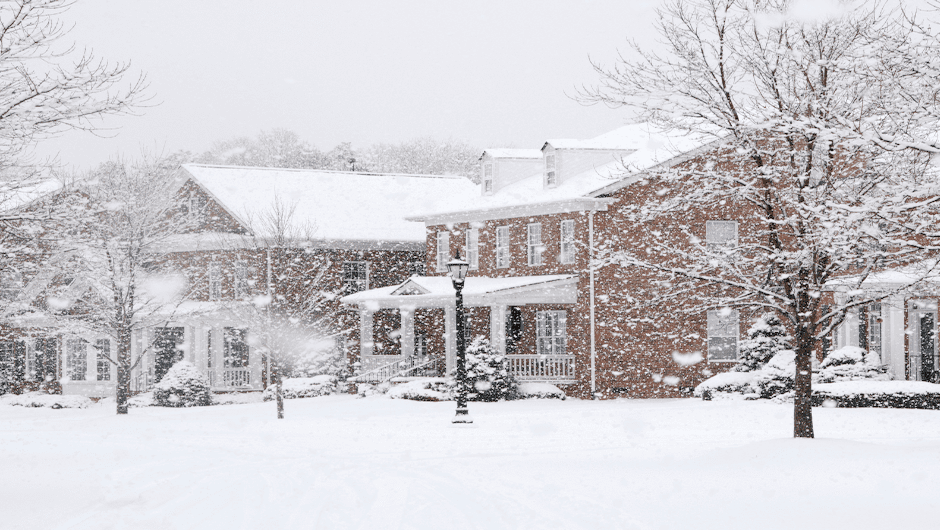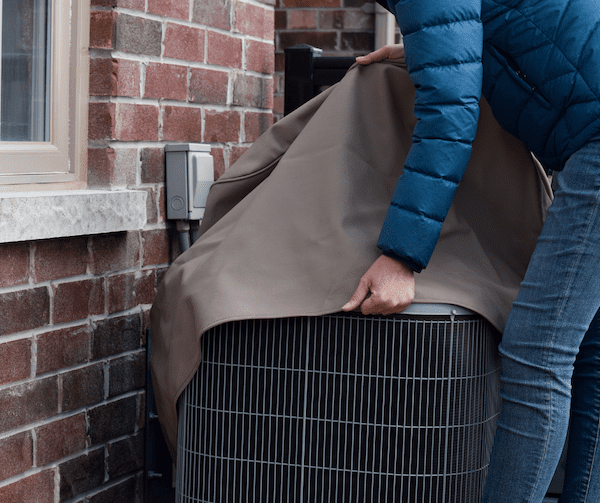
Every part of the world deals with unique varieties of severe weather, and according to the EPA, “Scientific studies indicate that extreme weather events such as heat waves and large storms are likely to become more frequent or more intense.” Over the past few years, we’ve seen evidence of this, making it all the more necessary to be prepared. Here in Massachusetts, we deal primarily with extreme rain, wind, and snow. As winter inches nearer, I recommend that clients begin to think about preparing their HVAC system before the snowstorms start. However, having a plan for extreme weather is important year-round.
Experiencing severe weather conditions can result in malfunctions and expensive repairs for your HVAC system. Additionally, you may find yourself in considerable discomfort, especially during freezing temperatures. Fortunately, there are proactive measures you can take to protect your heating and cooling systems while also ensuring your family’s comfort.
Preventative Suggestions

While there is no way to guarantee extreme weather won’t damage your system, these steps can help prevent it:
1.Regular Maintenance:
When your system is checked for loose or damaged parts, has a fresh filter, and has the correct levels and calibration of essential components, it is less likely to break down when severe weather approaches. It is critical that you schedule routine inspections and change your HVAC filter as needed.
2.Outdoor Unit Covers:
Adding a cover around and/or on top of your outdoor unit can prevent debris from hitting it, as well as snow and ice from building up. Preventing branches and other objects from striking the unit and ensuring adequate airflow is key to keeping your system safe through storms. There are also temporary covers that can be placed over the unit when the weather forecast indicates a possibility of unusually severe weather.
3. Surge Protection:
Storms can often cause electricity to be inconsistent, which can in turn, cause the electrical components of your HVAC system to fail. By preventing excess voltage through surge protection, you have a layer of defense against electrical damage.
4. Thoughtful Landscaping:
Trimming trees around your condenser and not planting anything within several feet of your system can be a simple way to decrease the amount of debris that could hit your HVAC unit when there is extreme wind.
5. Secure Outdoor Furniture and Miscellaneous Objects:
If you have furniture, toys, potted plants, or other miscellaneous objects, make sure they are secure, so your HVAC system does not sustain impact damage with lose objects.
6. Elevating Outdoor Units:
If there is any risk of flooding in your area, speak to a professional about safely adding elevation underneath your outdoor unit.
These steps can help protect your HVAC system all year, saving you time, money, and stress. Any precautionary measures taken now will serve you well should extreme weather come your way! However, if you’re looking for further information and suggestions, reach out to your local HVAC company (or us if you’re in Massachusetts!) and speak to a certified technician.
We hope you found this article helpful and look forward to continuing to ensure your comfort and safety. Thank you for choosing CPS.
If you are in need of more information or would like to schedule a free consultation, you can reach us at 508-460-6691 or fill out this form.





